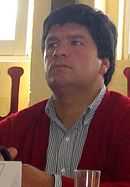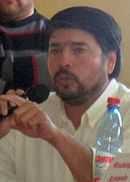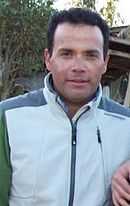Elections in Pichilemu
| | |||||||||||||||||||||||||||||||||||||||||||||||||||||||
| |||||||||||||||||||||||||||||||||||||||||||||||||||||||
| |||||||||||||||||||||||||||||||||||||||||||||||||||||||
| |||||||||||||||||||||||||||||||||||||||||||||||||||||||
This is a list of elections in Pichilemu, since the Chilean transition to democracy in 1989. Seventeen elections have occurred since then, including five municipal ones, and two special elections in 2009 and in 2012, with the first being held in the Pichilemu City Council, which elected Roberto Córdova Carreño as mayor of the city, succeeding Marcelo Cabrera Martínez, elected in 2008, but held office for a short period of time.
Presidential elections
Presidential election, 1989
.jpg)
The presidential election of 1989 was held on that year's 14 December. There were three candidates: Hernán Büchi Buc, representing Democracy and Progress, currently known as the Alliance for Chile; Francisco Javier Errázuriz Talavera, founding member of the Union of the Centrist Center (UCC); and Patricio Aylwin Azócar, member of the Christian Democrat Party from the Concert of Parties for Democracy (Concertación).[1][2]
The 1989 elections were the first since the Chilean transition to democracy,[1] after a national plebiscite decided that the military regime of Augusto Pinochet should not continue, and that a president and a congress would be elected.[1]
Patricio Aylwin was eventually elected president of Chile with a 55.17 per cent of the total valid votes, an absolute majority;[2] in Pichilemu, Aylwin obtained a lesser percentage: 46.23; despite of this, he got the majority of votes. Despite Francisco Javier Errázuriz's presence in Pichilemu —he is the proprietary of 500-year old hacienda San Antonio de Petrel—,[3] he was left in second place in the local results with the 33.03 per cent of the vote; Hernán Büchi obtained only the 20.75 per cent of the vote in Pichilemu.[4]
| Ballot number | Candidate | Party/Coalition | Votes | % | National votes | Nat. % | Result |
|---|---|---|---|---|---|---|---|
| 1 | Hernán Büchi Buc | Ind./Democracy and Progress | 1,235 | 20.75 | 2,052,116 | 29.40 | |
| 2 | Francisco Javier Errázuriz Talavera | Ind./UCC | 1,966 | 33.03 | 1,077,172 | 15.43 | |
| 3 | Patricio Aylwin Azócar | PDC/CPD | 2,752 | 46.23 | 3,850,571 | 55.17 | President |
| Total valid votes | 5,953 | 100 | 6,979,859 |
Presidential election, 1993

The second Chilean presidential election since the military regime of Augusto Pinochet ended was held on 11 December 1993.[6] The President elected in this election would hold the office between 1994 and 2000.[7]
There were six candidates for the presidency of Chile: Manfred Max-Neef, from the Ecologist Party (PE); Eugenio Pizarro Poblete, a Catholic priest, member of the Communist Party (PCCh); Eduardo Frei Ruiz-Tagle, son of former president Eduardo Frei Montalva, member of the Christian Democrat Party (PDC) of the Concert of Parties for Democracy (Concertación); Cristián Reitze Campos, of the Humanist Party; Arturo Alessandri Besa, of the Alessandri family (grandson of former President Arturo Alessandri Palma and nephew of his son, also former President Jorge Alessandri Rodríguez), member of the Independent Democrat Union; and José Piñera Echenique, brother of President of Chile Sebastián Piñera, as independent.[8]
The elections were won by Eduardo Frei Ruiz-Tagle, who obtained the absolute majority in the national elections, getting 57.98 per cent of the total valid votes;[8] in Pichilemu, he obtained an even larger percentage: 65.56%.[9]
| Ballot number | Candidate | Party/Coalition | Votes | % | National votes | Nat. % | Result |
|---|---|---|---|---|---|---|---|
| 1 | Manfred Max Neef | Ind. | 171 | 2.80 | 387,102 | 5.55 | |
| 2 | Eugenio Pizarro Poblete | Ind. | 190 | 3.11 | 327,402 | 4.70 | |
| 3 | Eduardo Frei Ruiz-Tagle | PDC/CPD | 4,004 | 65.56 | 4,040,497 | 57.98 | President |
| 4 | Cristián Reitze Campos | PAHV | 78 | 1.28 | 81,675 | 1.17 | |
| 5 | Arturo Alessandri Besa | UDI | 1,473 | 24.12 | 1,701,324 | 24.41 | |
| 6 | José Piñera Echenique | Ind. | 191 | 3.13 | 430,950 | 6.18 | |
| Total valid votes | 6,107 | 6,968,950 |
Presidential election, 1999–2000

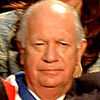
The third presidential election since 1989 took place on 12 December 1999. As Joaquín Lavín, candidate of the Alianza por Chile, and Ricardo Lagos, candidate of the Concertación de Partidos por la Democracia obtained nationally an absolute majority (each achieved about a 47 per cent), there was a runoff election on 16 January 2000; Lagos became the President-elect of Chile, being elected nationally with a 51.31 per cent of the votes. Ricardo Lagos was sworn in on 11 March 2000.[11]
There were, originally, two candidates representing the Concertación. Lagos, of the Socialist Party (PS), faced open primaries against Andrés Zaldívar, from the Christian Democrat Party (PDC). Lagos eventually won the national open primaries. On the other side, Lavín, member of the Independent Democrat Union (UDI) was the most popular candidate in the Alianza; previously, he had been mayor of Las Condes, and would become after the elections mayor of Santiago (elected in 2000), taking some "extravagant" measures such as creating a beach on the banks of the Mapocho River.[12]
- First round, 1999
The first round of the 1999 presidential election was held on that year's 12 December.[11] There were six candidates in the election: Arturo Frei Bolívar, from the Progressive Union of the Centrist Center (UCC); Sara Larraín Ruiz-Tagle, an independent politician; Gladys Marín Millie, from the Communist Party of Chile (PCCh); Tomás Hirsch Goldschmidt, of the Humanist Party of Chile (PH); Ricardo Lagos Escobar, of the Socialist Party of Chile (PS); and Joaquín Lavín Infante, from the Independent Democrat Union (UDI).[13]
Together, Frei, Larraín, Marín, and Hirsch would received about a 4 per cent of the votes, while Ricardo Lagos and Joaquín Lavín received each a 47 per cent.[13] As none of the candidates achieved an absolute majority nationally, a runoff election was scheduled.[11]
In Pichilemu, the results were similar to the national scene, though not exactly the same: Frei, Larraín, Marín, and Hirsch together got about a 4 per cent; Joaquín Lavín achieved a 44.77 per cent of the vote; Ricardo Lagos, the Concertación candidate, obtained a 52.55 per cent of the vote, an absolute majority.[14]
| Ballot number | Candidate | Party/Coalition | Votes | % | National votes | Nat. % | Result |
|---|---|---|---|---|---|---|---|
| 1 | Arturo Frei Bolívar | UCC | 26 | 0.40 | 26,812 | 0.38 | |
| 2 | Sara María Larraín Ruiz-Tagle | Ind. | 41 | 0.63 | 31,319 | 0.44 | |
| 3 | Gladys Marín Millie | PCC | 79 | 1.22 | 225,224 | 3.19 | |
| 4 | Tomás Hirsch Goldschmidt | PH | 27 | 0.42 | 36,235 | 0.51 | |
| 5 | Ricardo Lagos Escobar | PPD/CPD | 3,396 | 52.55 | 3,383,339 | 47.96 | Runoff |
| 6 | Joaquín Lavín Infante | UDI/APC | 2,893 | 44.77 | 3,352,199 | 47.51 | Runoff |
| Total valid votes | 6,462 | 7.055.128 |
- Runoff, 2000
The runoff election took place on 16 January 2000; Ricardo Lagos of the Concert of Parties for Democracy faced the runoff against Joaquín Lavín of the Alliance for Chile.[11] The final results were clear, nationally: Lagos obtained a 51.31 percent of the votes; while Lavín, only the 48.69.[16] The results in Pichilemu were even more favourable to Lagos: he obtained a 53.22 per cent of vote; whilst Lavín only the 46.78 per cent.[17]
| Ballot number | Candidate | Party/Coalition | Votes | % | National votes | Nat. % | Result |
|---|---|---|---|---|---|---|---|
| 1 | Ricardo Lagos Escobar | PPD/CPD | 3,556 | 53.22 | 3,683,158 | 51.31 | President |
| 2 | Joaquín Lavín Infante | UDI/APC | 3,126 | 46.78 | 3,495,569 | 48.69 | |
| Total valid votes | 6,682 | 7,178,727 |
Presidential election, 2005–2006

The fourth presidential election in Chile since the return to democracy was held on 11 December 2005. As none of the candidates obtained the required absolute majority, Alianza candidate Sebastián Piñera Echenique faced a runoff election on 16 January 2006 against Concertación candidate Michelle Bachelet Jeria, who ultimately won the election with 53.50 per cent of the vote, against Piñera's 46.50%.[19] Bachelet became the first woman to be elected president in Chile, and took office on 11 March 2006.[20]
Four candidates competed for the Chilean presidential seat: Michelle Bachelet Jeria, from the Socialist Party (PS) and representing the center-left Concertación de Partidos por la Democracia, former Minister of Health and Defense under Ricardo Lagos;[20] Joaquín Lavín Infante, former mayor of the communes of Las Condes and Santiago and member of the Independent Democrat Union (UDI),[21] along with Sebastián Piñera Echenique, Senator of Santiago in the 1990s and president of the National Renewal party,[22] represented the center-right Alianza por Chile; Tomás Hirsch Goldschmidt, former Chile's ambassador to New Zealand, represented the Humanist Party from the far-left Juntos Podemos Más coalition of parties.[23]
Initially, the Concertación had two candidates for president: Bachelet and Soledad Alvear, from the Christian Democrat Party (PDC). Alvear was Minister of the Women National Service under the government of Patricio Aylwin, Minister of Justice under Frei, and Minister of Foreign Affairs under Lagos. Her nomination was opposed by Adolfo Zaldívar, president of her party. Primary elections were scheduled for July 2005 to define a sole candidate of the Concertación; however, they did not take place as Alvear renounced her candidacy in May.[19] The candidacy of two Alianza politicians, Piñera and Lavín, is explained in Chacho Álvarez and Isidoro Cheresky book Elecciones Presidenciales y Giro Político en América Latina (Presidential Election and Politician Spin in Latin America) because of "the political differences between both parties [Independent Democrat Union and National Renewal], as UDI leaders had an active participation [in the government] under the military regime, while the RN influence was minor."[19]
- First round, 2005
| Ballot number | Candidate | Party/Coalition | Votes | % | National votes | Nat. % | Result |
|---|---|---|---|---|---|---|---|
| 1 | Sebastián Piñera Echenique | RN | 2,031 | 29.51 | 1,763,694 | 25.41 | Runoff |
| 2 | Michelle Bachelet Jeria | PS/CPD | 3,081 | 44.77 | 3,190,691 | 45.96 | Runoff |
| 3 | Tomás Hirsch Goldschmidt | PH/JPM | 316 | 4.59 | 375,048 | 5.40 | |
| 4 | Joaquín Lavín Infante | UDI | 1,454 | 21.13 | 1,612,608 | 23.23 | |
| Total valid votes | 6,882 | 6,942,041 |
- Runoff, 2006
| Ballot number | Candidate | Party/Coalition | Votes | % | National votes | Nat. % | Result |
|---|---|---|---|---|---|---|---|
| 1 | Sebastián Piñera Echenique | RN/APC | 3,504 | 49.96 | 3,236,394 | 46.50 | |
| 2 | Michelle Bachelet Jeria | PS/CPD | 3,510 | 50.04 | 3,723,019 | 53.50 | President |
| Total valid votes | 7,014 | 6,959,413 |
Presidential election, 2009–2010
- First round, 2009
| Ballot number | Candidate | Party/ Coalition | Votes | % | Result |
|---|---|---|---|---|---|
| 1 | Jorge Arrate Mac-Niven | PCCh/JPM | 248 | 3.39 | |
| 2 | Marco Enríquez-Ominami Gumucio | Independent | 1,233 | 16.86 | |
| 3 | Sebastián Piñera Echenique | RN/CFC | 3,238 | 44.28 | Runoff |
| 4 | Eduardo Frei Ruiz-Tagle | PDC/CPD | 2,594 | 35.47 | Runoff |
| Total valid votes | 7,313 | 100.00 |
- Runoff, 2010
| Ballot number | Candidate | Party/ Coalition | Votes | % | Result |
|---|---|---|---|---|---|
| 1 | Sebastián Piñera Echenique | RN/CFC | 3,863 | 51.82 | President |
| 2 | Eduardo Frei Ruiz-Tagle | PDC/CPD | 3,591 | 48.18 | |
| Total valid votes | 7,454 | 100.00 |
Presidential election, 2013
- Primaries, June
| Ballot number | Candidate | Party | Votes | % | Result |
|---|---|---|---|---|---|
| 1 | Michelle Bachelet Jeria | PS | 1,650 | 79.86 | Candidate |
| 2 | José Antonio Gómez Urrutia | PRSD | 64 | 3.09 | |
| 3 | Claudio Orrego Larraín | PDC | 194 | 9.39 | |
| 4 | Andrés Velasco Brañes | Ind. List A | 158 | 7.64 | |
| Total valid votes | 2,066 | 100.00 |
| Ballot number | Candidate | Party | Votes | % | Result |
|---|---|---|---|---|---|
| 5 | Pablo Longueira Montes | UDI | 391 | 51.24 | Candidate |
| 6 | Andrés Allamand Zavala | RN | 372 | 48.75 | |
| Total valid votes | 763 | 100.00 |
Parliamentary elections
Parliamentary election, 1989
| Ballot number | Candidate | Party/Coalition | Votes | % | Result |
|---|---|---|---|---|---|
| 1 | Nicolás Díaz Sánchez | PDC/CPD | 1,698 | 29.75 | Senator |
| 2 | Anselmo Sule Candia | Ind. List A | 1,037 | 18.17 | Senator |
| 3 | Alfonso Orueta Ansoleaga | RN/DP | 770 | 13.49 | |
| 4 | Manuel Valdés Valdés | Ind. List B | 693 | 12.14 | |
| 5 | Domingo Durán Neumann | DR/AC | 265 | 4.64 | |
| 6 | Rafael Cumsille Zapapa | Ind. List D | 1,035 | 18.14 | |
| 7 | Ricardo Hernán Bustos Gómez | PL/LSC | 209 | 3.66 | |
| Total valid votes | 5,707 | 100 |
| Ballot number | Candidate | Party/Coalition | Votes | % | Result |
|---|---|---|---|---|---|
| 1 | Aníbal Pérez Lobos | PPD/CPD | 922 | 16.29 | |
| 2 | Juan Carlos Latorre Carmona | PDC/CPD | 1,887 | 33.33 | Deputy |
| 3 | José María Hurtado Ruiz-Tagle | RN/DP | 641 | 11.32 | Deputy |
| 4 | Claudio Rivadeneira Correa | Ind. List B | 698 | 12.33 | |
| 5 | Juan Esteban Montero Matta | DR/AC | 280 | 4.95 | |
| 6 | Raúl Orrego Escanilla | AN/AC | 735 | 12.98 | |
| 7 | Mario Mardones Ramírez | PL/LSC | 359 | 6.34 | |
| 8 | Osvaldo Olguín Silva | Ind. | 139 | 2.46 | |
| Total valid votes | 5,661 | 100 |
Parliamentary election, 1993
| Ballot number | Candidate | Party/Coalition | Votes | % | Result |
|---|---|---|---|---|---|
| 1 | Florindo Ramírez Toro | PC/ADI | 167 | 2.82 | |
| 2 | Alejandro Rivera Grohnert | Ind. List B | 1,451 | 24.48 | |
| 3 | José María Hurtado Ruiz-Tagle | RN/UPC | 678 | 11.44 | Deputy |
| 4 | Armando Jaramillo Lira | PPD/CPD | 710 | 11.98 | |
| 5 | Juan Carlos Latorre Carmona | PDC/CPD | 2,921 | 49.28 | Deputy |
| Total valid votes | 5,927 | 100 |
Parliamentary election, 1997
| Ballot number | Candidate | Party/Coalition | Votes | % | Result |
|---|---|---|---|---|---|
| 1 | Darío Poblete Morales | PH | 30 | 0.52 | |
| 2 | Joaquín Arduengo Naredo | PH | 42 | 0.73 | |
| 3 | Andrés Chadwick Piñera | UDI/UPC | 563 | 9.75 | Senator |
| 4 | Pablo Baraona Urzúa | Ind. List B | 122 | 2.11 | |
| 5 | Rafael Moreno Rojas | PDC/CPD | 2,349 | 40.67 | Senator |
| 6 | Anselmo Sule Candia | PRSD/CPD | 831 | 14.39 | |
| 7 | Carlos Poblete Ávila | PC/LI | 156 | 2.70 | |
| 8 | Mónica Madariaga Gutiérrez | Ind. List E | 1,581 | 27.37 | |
| 9 | Carlos Arroyo Hodges | UCCP/Chile 2000 | 102 | 1.77 | |
| Total valid votes | 5,776 | 100 |
| Ballot number | Candidate | Party/Coalition | Votes | % | Result |
|---|---|---|---|---|---|
| 1 | José Melgarejo Olguín | PH | 36 | 0.62 | |
| 2 | Andrés Leal Alvarado | PH | 32 | 0.55 | |
| 3 | Ramón Barros Montero | UDI/UPC | 175 | 3.01 | |
| 4 | José María Hurtado Ruiz-Tagle | RN/UPC | 159 | 2.73 | |
| 5 | Rafael Arratia Valdebenito | PDC/CPD | 2,101 | 36.10 | Deputy |
| 6 | Mauricio Salinas Escobar | PPD/CPD | 446 | 7.66 | |
| 7 | Patricio Martínez Amaya | PC/LI | 160 | 2.75 | |
| 8 | María Victoria Ovalle Ovalle | UCCP/Chile 2000 | 1,333 | 22.90 | Deputy |
| 9 | Roberto Michelini Pandolf | UCCP/Chile 2000 | 1,378 | 23.68 | |
| Total valid votes | 5,820 | 100 |
Parliamentary election, 2001
| Ballot number | Candidate | Party/Coalition | Votes | % | Result |
|---|---|---|---|---|---|
| 1 | Patricio Martínez Amaya | PC | 114 | 1.92 | |
| 2 | Ricardo Antonio Lisboa Henríquez | PH | 61 | 1.03 | |
| 3 | José Fernando Melgarejo Olguín | PH | 65 | 1.09 | |
| 4 | Ramón Barros Montero | UDI/APC | 1,951 | 32.83 | Deputy |
| 5 | Hernán Granier Bulnes | RN/APD | 460 | 7.74 | |
| 6 | Rafael Arratia Valdebenito | PDC/CPD | 1,519 | 25.56 | |
| 7 | Aníbal Pérez Lobos | PPD/CPD | 1,773 | 29.83 | Deputy |
| Total valid votes | 5,943 | 100 |
Parliamentary election, 2005
| Ballot number | Candidate | Party/Coalition | Votes | % | Result |
|---|---|---|---|---|---|
| 1 | Juan Pablo Letelier Morel | PS/CPD | 2,232 | 34.29 | Senator |
| 2 | Aníbal Pérez Lobos | PPD/CPD | 1,543 | 23.70 | |
| 3 | Marilén Cabrera Olmos | PH/JPM | 200 | 3.07 | |
| 4 | Carmen Moncada Cofré | Ind. List C | 108 | 1.66 | |
| 5 | Ramón Achurra Larraín | Ind. List D | 747 | 11.47 | |
| 6 | Andrés Chadwick Piñera | UDI/APC | 1,680 | 25.81 | Senator |
| Total valid votes | 6,510 | 100 |
| Ballot number | Candidate | Party/Coalition | Votes | % | Result |
|---|---|---|---|---|---|
| 1 | Rubén Andino Maldonado | PS/CPD | 406 | 6.22 | |
| 2 | Juan Carlos Latorre Carmona | PDC/CPD | 2,868 | 43.91 | Deputy |
| 3 | Mauro Pantoja Rivera | PH/JPM | 184 | 2.82 | |
| 4 | Patricio Martínez Amaya | PCCH/JPM | 159 | 2.43 | |
| 5 | César Molfino Mendoza | Ind. List D | 496 | 7.59 | |
| 6 | Ramón Barros Montero | UDI/APD | 2,418 | 37.02 | Deputy |
| Total valid votes | 6,531 | 100 |
Parliamentary election, 2009
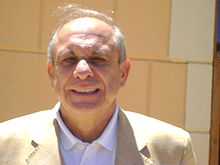
| Ballot number | Candidate | Party/Coalition | Votes | % | Result |
|---|---|---|---|---|---|
| 1 | Juan Carlos Latorre Carmona | PDC/CPD/JPM | 2,260 | 32.42 | Deputy |
| 2 | Bárbara Figueroa Sandoval | PCCH/CPD/JPM | 482 | 6.91 | |
| 3 | Ramón Barros Montero | UDI/CPC | 2,804 | 40.22 | Deputy |
| 4 | Lautaro Alliende Carranza | RN/CPC | 902 | 12.94 | |
| 5 | Ángela Sasso Bañados | PH/NMC | 133 | 1.91 | |
| 6 | Lidia Eliana Pizarro Gamboa | PRI/CLVF | 114 | 1.64 | |
| 7 | Eduardo Román Martínez | PRI/CLVF | 277 | 3.97 | |
| Total valid votes | 6,972 | 100 |
Municipal elections
Municipal election, 1992
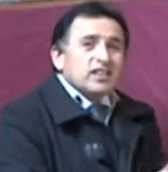
| Ballot number | Candidate | Party/Coalition | Votes | % | Result |
|---|---|---|---|---|---|
| 1 | Bernabé Pavez Clavijo | PS/CPD | 158 | 2.67 | |
| 2 | Miguel Ángel González Carvacho | PPD/CPD | 296 | 5.00 | |
| 3 | Jorge Vargas González | PDC/CPD | 732 | 12.38 | Councillor |
| 4 | Mario Bichón Cáceres | PDC/CPD | 134 | 2.27 | Councillor |
| 5 | Héctor Urzúa Cornejo | PDC/CPD | 93 | 1.57 | |
| 6 | Sergio Morales Razo | PR/CPD | 46 | 0.78 | |
| 7 | Carlos Cerda López | PC | 117 | 1.98 | |
| 8 | Nelson Alberto González Becerra | PC | 42 | 0.71 | |
| 9 | Carlos Enrique Lizana | PC | 16 | 0.27 | |
| 10 | Mariano Polanco Galarce | RN/PYP | 484 | 8.18 | Councillor |
| 11 | Osvaldo Vidal Vidal | RN/PYP | 134 | 2.27 | |
| 12 | Leopoldo Moya Bruce | RN/PYP | 93 | 1.57 | |
| 13 | Humberto Vargas Quiroz | RN/PYP | 206 | 3.48 | |
| 14 | Ana María Becerra Jorquera | UDI/PYP | 208 | 3.52 | |
| 15 | Carlos O. Yáñez González | UDI/PYP | 102 | 1.72 | |
| 16 | Orlando Cornejo Bustamante | UCC | 634 | 10.72 | Mayor |
| 17 | Óscar Aguilera Pérez | UCC | 89 | 1.50 | |
| 18 | Aldo Polanco Contreras | UCC | 292 | 4.94 | Councillor |
| 19 | Manuel Celis González | UCC | 256 | 4.33 | |
| 20 | Luis Cepeda Vargas | UCC | 101 | 1.71 | |
| 21 | Hernán Traslaviña Pérez | UCC | 22 | 0.37 | |
| 22 | Raúl Tobar Pavez | Ind. | 1,202 | 20.32 | Councillor |
| 23 | Washington Saldías González | Ind. | 458 | 7.74 | |
| Total valid votes | 5,915 | 100 |
Municipal election, 1996
| Ballot number | Candidate | Party/Coalition | Votes | % | Result |
|---|---|---|---|---|---|
| 1 | Orlando Cornejo Bustamante | Ind. List B | 216 | 3.40 | |
| 2 | Carlos Leyton Labarca | Ind. List B | 261 | 4.11 | Councillor |
| 3 | Clara Urzúa | Ind. List B | 125 | 1.27 | |
| 4 | Mario Alejandro Moraga Cáceres | Ind. List B | 229 | 3.61 | |
| 5 | Aldo Polanco Contreras | Ind. List B | 1,277 | 20.10 | Councillor |
| 6 | Washington Saldías González | Ind. List B | 870 | 13.70 | Councillor |
| 7 | Marco Antonio Valenzuela Paredes | PC/LI | 31 | 0.49 | |
| 8 | Luis Alberto Jannasz Aliaga | Ind. List D Sub-UDI and Ind. | 188 | 2.96 | |
| 9 | Luis Alberto Menares Martínez | Ind. List D Sub-UDI and Ind. | 55 | 0.87 | |
| 10 | Juan Gaete Becerra | Ind. List D Sub-UDI and Ind. | 205 | 3.23 | |
| 11 | Mariano Polanco Galarce | RN/UPC | 606 | 9.54 | Councillor |
| 12 | Carlos Cerda López | PS/CPD | 295 | 4.64 | |
| 13 | Jorge Arturo Gajardo González | PRSD/CPD | 67 | 1.05 | |
| 14 | Jorge Vargas González | PDC/CPD | 1,855 | 29.20 | Mayor |
| 15 | Mario Bichón Cáceres | PDC/CPD | 72 | 1.13 | Councillor |
| Total valid votes | 6,352 | 100 |
Municipal election, 2000
| Ballot number | Candidate | Party/Coalition | Votes | % | Result |
|---|---|---|---|---|---|
| 1 | Ernesto Hevia Pavez | PC/LI | 19 | 0.30 | |
| 2 | Felipe Bustamante Olivares | Ind. List B | 60 | 0.94 | |
| 3 | Carlos Leyton Labarca | Ind. List C | 717 | 11.26 | Councillor |
| 4 | Carlos Von Unger Cassanello | Ind. List C | 81 | 1.27 | |
| 5 | Juan Gaete Becerra | UDI/APC | 316 | 4.96 | |
| 6 | Aldo Polanco Contreras | UCC/CC | 526 | 8.26 | Councillor |
| 7 | Mariano Polanco Galarce | UCC/CC | 127 | 1.99 | |
| 8 | Fernando Urzúa Púa | UCC/CC | 175 | 2.75 | |
| 9 | Raúl Tobar Pavez | Ind. List D | 177 | 2.78 | |
| 10 | Orlando Cornejo Bustamante | Ind. List D | 86 | 1.35 | |
| 11 | Jorge Vargas González | PDC/CPD | 2,596 | 40.75 | Mayor |
| 12 | Víctor Rojas González | PDC/CPD | 261 | 4.10 | Councillor |
| 13 | Roberto Córdova Carreño | PS/CPD | 938 | 14.73 | Councillor |
| 14 | Waldo González Murilo | Ind. List E | 63 | 0.99 | |
| 15 | Washington Saldías González | PPD/CPD | 106 | 1.66 | Councillor |
| 16 | Mario Alejandro Moraga Cáceres | Ind. | 122 | 1.92 | |
| Total valid votes | 6,370 | 100 |
Municipal election, 2004
| Ballot number | Candidate | Party/Coalition | Votes | % | Result |
|---|---|---|---|---|---|
| 1 | Lucila González Soto | PC/JPM | 64 | 0.94 | |
| 2 | Paulina Nin de Cardona Muñoz | Ind. List B | 300 | 4.40 | |
| 3 | Jorge Vargas González | PDC/CPD | 2,958 | 43.37 | Mayor |
| 4 | Washington Ramón Saldías González | Ind. | 279 | 4.09 | |
| 5 | Fortunato Bobadilla Acevedo | Ind. | 2,612 | 38.30 | |
| 6 | Mario Alejandro Moraga Cáceres | Ind. | 97 | 1.42 | |
| 7 | Raúl Tobar Pavez | Ind. | 510 | 7.48 | |
| Total valid votes | 6,820 | 100 |
| Ballot number | Candidate | Party/Coalition | Votes | % | Result |
|---|---|---|---|---|---|
| 1 | Felipe Bustamante Olivares | PC/JPM | 61 | 0.90 | |
| 2 | Viterbo Osorio Castro | PC/JPM | 62 | 0.92 | |
| 3 | Miguel Ángel González Carvacho | PH/JPM | 110 | 1.63 | |
| 4 | Alex Polanco Díaz | PH/JPM | 54 | 0.80 | |
| 5 | Fernando Urzúa Púa | Ind. List A | 274 | 4.06 | |
| 6 | Héctor Iván Fuentes Cáceres | Ind. List A | 220 | 3.26 | |
| 7 | Aldo Polanco Contreras | RN/APC | 505 | 7.48 | Councillor |
| 8 | Mariano Polanco Galarce | RN/APC | 320 | 4.74 | |
| 9 | Andrés Zúñiga Caro | RN/APC | 79 | 1.17 | |
| 10 | Carlos Leyton Labarca | UDI/APC | 423 | 6.26 | |
| 11 | José Luis Galaz Morales | UDI/APC | 63 | 0.93 | |
| 12 | Héctor Cornejo Galarce | UDI/APC | 447 | 6.62 | Councillor |
| 13 | Víctor Rojas González | PDC/CPD | 462 | 6.84 | Councillor |
| 14 | Loreto Puebla Muñoz | PDC/CPD | 291 | 4.31 | |
| 15 | Alfonso Aravena González | PDC/CPD | 341 | 5.05 | |
| 16 | Hernán Garrido Salas | PPD/CPD | 357 | 5.29 | Councillor |
| 17 | Roberto Córdova Carreño | PS/CPD | 998 | 14.78 | Councillor |
| 18 | Carlos Cerda López | PS/CPD | 211 | 3.13 | |
| 19 | Eduardo Saldías González | Ind. | 146 | 2.16 | |
| 20 | Rogelio Galdames Galdames | Ind. | 50 | 0.74 | |
| 21 | Eugenio de Jesús Arraño González | Ind. | 75 | 1.11 | |
| 22 | José Luis Arraño Lizana | Ind. | 74 | 1.10 | |
| 23 | Marcelo Cabrera Martínez | Ind. | 1,129 | 16.72 | Councillor |
| Total valid votes | 6,752 | 100 |
Municipal election, 2008
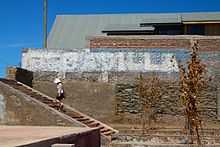
| Ballot number | Candidate | Party/Coalition | Votes | % | Result |
|---|---|---|---|---|---|
| 1 | Raúl Tobar Pavez | PRI/PCL | 322 | 4.49 | |
| 2 | Héctor Leiva Polanco | PDC/CPD | 1,665 | 23.22 | |
| 3 | Felipe Bustamante Olivares | PCCH/JPM | 156 | 2.18 | |
| 4 | Fortunato Bobadilla Acevedo | Ind. List E | 2,010 | 28.03 | |
| 5 | Marcelo Cabrera Martínez | Ind. | 3,017 | 42.08 | Mayor |
| Total valid votes | 7,170 | 100 |
| Ballot number | Candidate | Party/Coalition | Votes | % | Result |
|---|---|---|---|---|---|
| 1 | José González Catalán | PRI/PCL | 225 | 3.16 | |
| 2 | Juan Tobías Cornejo Vargas | Ind. List A | 326 | 4.57 | Councillor |
| 3 | Antonio Rojas Díaz | Ind. List A | 15 | 0.21 | |
| 4 | Lorena Rojas Lepe | Ind. List A | 141 | 1.98 | |
| 5 | Fernando Urzúa Púa | Ind. List A | 178 | 2.50 | |
| 6 | Mauricio Antonio Vargas Villegas | Ind. List A | 66 | 0.93 | |
| 7 | Roberto Córdova Carreño | PS/CPD | 756 | 10.61 | Councillor |
| 8 | Marta Urzúa Púa | PS/CPD | 179 | 2.51 | Councillor |
| 9 | Patricio Morales Acevedo | Ind. List C | 108 | 1.52 | |
| 10 | Fabricio Cáceres Jorquera | PDC/CPD | 155 | 2.17 | |
| 11 | Alfonso Aravena González | PDC/CPD | 164 | 2.30 | |
| 12 | Hernán Vieira Herrera | PDC/CPD | 127 | 1.78 | |
| 13 | Alex Polanco Díaz | PH/JPM | 28 | 0.39 | |
| 14 | José Manuel Llanca Bustamante | PH/JPM | 57 | 0.80 | |
| 15 | Enrique Iván Lizana Tobar | PH/JPM | 273 | 3.83 | |
| 16 | Jorge Daniel Vargas Vargas | Ind. List D | 66 | 0.93 | |
| 17 | Patricio Hevia Olmedo | Ind. List D | 47 | 0.66 | |
| 18 | Aldo Polanco Contreras | RN/APC | 725 | 10.17 | Councillor |
| 19 | Nicolás Faúndez Arévalo | RN/APC | 260 | 3.65 | |
| 20 | Viviana Parraguez Ulloa | RN/APC | 447 | 6.27 | Councillor |
| 21 | Pablo Martínez Quinteros | UDI/APC | 369 | 5.18 | |
| 22 | Rolando Leyton Labarca | Ind. List E | 197 | 2.76 | |
| 23 | Amarildo Calderón Cornejo | Ind. List E | 113 | 1.59 | |
| 24 | Jorge Chamorro Carrasco | PRSD/CPD | 35 | 0.49 | |
| 25 | Javiera del Carmen Ortega Duarte | Ind. List F | 86 | 1.21 | |
| 26 | Luz Garcés Figueroa | PPD/CPD | 200 | 2.81 | |
| 27 | Luz Rojas Martínez | PPD/CPD | 213 | 2.99 | |
| 28 | Andrea Aranda Escudero | Ind. List F | 491 | 6.89 | Councillor |
| 29 | Fabiola Soto Gallardo | Ind. | 49 | 0.69 | |
| 30 | Carmen Martínez Orellana | Ind. | 102 | 1.43 | |
| 31 | Lidia Raquelina Catalán González | Ind. | 176 | 2.47 | |
| 32 | Mario Alejandro Moraga Cáceres | Ind. | 629 | 8.83 | |
| 33 | María Eugenia Terán Galaz | Ind. | 124 | 1.74 | |
| Total valid votes | 7,127 | 100 |
Municipal election, 2012
| Ballot number | Candidate | Party/Coalition | Votes | % | Result |
|---|---|---|---|---|---|
| 1 | Washington Araneda Carrasco | PRO/CPT | 178 | 2.49 | |
| 2 | Roberto Córdova Carreño | PS/CPD | 3,507 | 49.13 | Mayor |
| 3 | Carlos Acuña Arévalo | RN/CPC | 1,492 | 20.90 | |
| 4 | Mario Alejandro Moraga Cáceres | Independent | 469 | 6.57 | |
| 5 | Cristián Tamayo Latapiat | Independent | 153 | 2.14 | |
| 6 | Iván Cabrera Martínez | Independent | 1,339 | 18.76 | |
| Total valid votes | 7,170 | 100 |
| Ballot number | Candidate | Party/Coalition | Votes | % | Result |
|---|---|---|---|---|---|
| 7 | Juan Tobías Cornejo Vargas | PRI/REI | 170 | 2.37 | |
| 8 | Carlos Echazarreta Iñiguez | PRI/REI | 98 | 1.37 | |
| 9 | José González Catalán | PRI/REI | 120 | 1.67 | |
| 10 | Patricio Morales Acevedo | Ind./REI | 143 | 1.99 | |
| 11 | Juan Carlos Arredondo Leiva | Ind./REI | 65 | 0.91 | |
| 12 | Jaime Huerta Castillo | Ind./REI | 48 | 0.67 | |
| 13 | Luis Fernando González Calderón | PRO/CPT | 71 | 0.99 | |
| 14 | Mauricio Antonio Vargas Villegas | PRO/CPT | 38 | 0.53 | |
| 15 | Érika Saldías González | PRO/CPT | 55 | 0.77 | |
| 16 | María Angélica Fernández Suazo | PRO/CPT | 20 | 0.28 | |
| 17 | Lía Lazo Bravo | Ind./CPT | 111 | 1.55 | |
| 18 | Fidel Antonio Valenzuela González | Ind./CPT | 155 | 2.16 | |
| 19 | Víctor Cornejo Becerra | PPD/CHJ | 281 | 3.92 | |
| 20 | Alejandra Navarro Navarro | PPD/CHJ | 53 | 0.74 | |
| 21 | Andrea Aranda Escudero | Ind./PPD/CHJ | 685 | 9.56 | Councillor |
| 22 | Felipe Bustamante Olivares | PC/CHJ | 79 | 1.10 | Councillor |
| 23 | Mario Morales Cárceles | Ind./PC/CHJ | 969 | 13.52 | Councillor |
| 24 | Víctor Manuel Rojas González | Ind./PRSD/CHJ | 287 | 4.00 | |
| 25 | Marta Urzúa Púa | PS/CPD | 300 | 4.18 | Councillor |
| 26 | Sergio Mella Varas | PS/CPD | 120 | 1.67 | |
| 27 | Marco Antonio Salgado Contreras | PS/CPD | 235 | 3.28 | |
| 28 | Héctor Esteban Henríquez Tobar | PDC/CPD | 149 | 2.08 | |
| 29 | Aldo Pinto Torreblanca | PDC/CPD | 138 | 1.92 | |
| 30 | Nicole Nataly Grez Cañete | Ind./PDC/CPD | 43 | 0.60 | |
| 31 | Alex Polanco Díaz | PH/MH | 33 | 0.46 | |
| 32 | Raúl Tobar Pavez | Ind./MH | 160 | 2.23 | |
| 33 | Javiera Ortega Duarte | Ind./MH | 68 | 0.95 | |
| 34 | Cirilo Cabrera Cabrera | Ind./MH | 113 | 1.58 | |
| 35 | Viviana Parraguez Ulloa | RN/CPC | 253 | 3.53 | |
| 36 | Aldo Polanco Contreras | RN/CPC | 464 | 3.57 | Councillor |
| 37 | Jorge Fernando Urzúa Púa | Ind./RN/CPC | 209 | 2.92 | |
| 38 | Hugo Toro Galaz | UDI/CPC | 560 | 7.81 | Councillor |
| 39 | Pablo Martínez Quinteros | UDI/CPC | 501 | 6.99 | |
| 40 | Marcela Muñoz Vistozo | UDI/CPC | 34 | 0.47 | |
| 41 | Blanca Parraguez Durán | Ind. | 341 | 4.76 | |
| Total valid votes | 7,169 | 100 |
Other elections
City council's mayor election, 2009
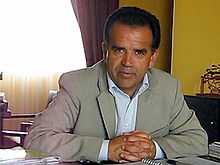
On 1 September 2009, an extraordinary meeting of the Pichilemu City Council, then composed by councilors Juan Cornejo Vargas from the Regionalist Party of the Independents (PRI), Aldo Polanco Contreras and Viviana Parraguez Ulloa, both from the National Renewal party (RN), Marta Urzúa Púa and Roberto Córdova Carreño from the Socialist Party (PS), and Andrea Aranda Escudero from the Party for Democracy (PPD), was held to elect the successor of Marcelo Cabrera Martínez, who was elected mayor in October 2008 but was banned from holding political offices for seven years in February 2009, in a case known as Boletas Adulteradas.[49]
The meeting was presided by Roberto Córdova Carreño and lasted seven minutes. The councilors elected him as the next mayor with four votes. Both Aldo Polanco and Viviana Parraguez obtained one vote, given by themselves.[50]
Córdova's former office as councilor was left vacant until mid-October of that year, when the Regional Electoral Court (Tribunal Electoral Regional, TER) appointed Patricio Morales Acevedo,[51] an independent candidate for councilor, supported by the Socialist Party (PS), in the 2008 municipal election. Morales obtained 108 votes (1.52%) in that election.[46] The process of appointment was reportedly delayed by an unsuccessful complaint to that court by Alfonso Aravena González, another 2008 candidate for councilor who represented the Christian Democrat Party (DC) in that occasion, who said the office should "correspond to him" as he obtained 164 votes (2.30%) votes in the election of the previous year.[51] Morales took office as councilor of Pichilemu on 16 October 2009 during a meeting of the city council.[51] The results of the election that chose Córdova as Cabrera's successor, according to Pichilemu News, are the following:
Concertación municipal primaries, 2012
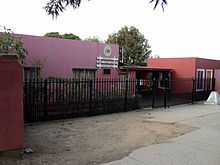
| Wikinews has related news: Roberto Córdova wins Concertación primary elections in Pichilemu, Chile |
Primary elections were held on 1 April 2012 in order to choose a unique candidate for mayor representing the Concertación de Partidos por la Democracia coalition of left-winged parties for the municipal elections on 28 October 2012. Anyone inscribed in the poll registry before 30 November 2011 and without membership in non-Concertación parties could participate in the election.[52]
Incumbent mayor Roberto Córdova (Socialist Party) faced incumbent councillor Andrea Aranda (Party for Democracy) in the election. Aranda was particularly criticized by local news media Pichilemu News as "being coincidentally the wife of former Christian Democrat mayor Jorge Vargas González (condemned by justice for the crime of bribery and the presentation of false witnesses), and who is –much to his regret– disallowed to continue [participating] in active politics, for now, but has the relief of the one following his steps."[53] Provincial-newspaper El Expreso de la Costa qualified the election as "historic." Córdova's slogan was "Pichilemu, better every day" ("Pichilemu, cada día mejor"), while Aranda's was "With woman's strength" ("Con fuerza de mujer").[54]
According to reports by local radio station Entre Olas, the voting process was done in absolute normality, except for the appearance of a van painted with slogans such as "No more robbers at the Municipality" ("No más ladrones al municipio"), "Open your eyes" ("Abre tus ojos"), and "Don't sell yourself" ("No te vendas"); subsequently the owner of the van had a heated argument with former mayor Jorge Vargas González (as mentioned previously, Aranda's husband), blaming him for "discrediting Pichilemu."[55]
| Ballot number | Candidate | Party | Votes | % | Result |
|---|---|---|---|---|---|
| 1 | Roberto Córdova Carreño | PS | 1,903 | 73.14 | Candidate |
| 2 | Andrea Aranda Escudero | PPD | 699 | 26.86 | |
| Total votes | 2,602 | 100.00 |
References
- ↑ 1.0 1.1 1.2 Spooner, Mary Helen (1994). Soldiers in a narrow land: the Pinochet regime in Chile. University of California Press. pp. 254–255. ISBN 978-0-520-08083-6. Retrieved 2 June 2011.
- ↑ 2.0 2.1 Siavelis, Peter; Morgenstern, Scott (2008). Pathways to power: political recruitment and candidate selection in Latin America. Penn State Press. pp. 245–247. ISBN 978-0-271-03375-4. Retrieved 2 June 2011.
- ↑ "Chorean 50 palos desde fundo de Fra Fra". La Cuarta (in Spanish) (COPESA). 12 December 2004. Archived from the original on 7 March 2013. Retrieved 2 March 2013.
- ↑ 4.0 4.1 "Votación Candidatos por Comuna Pichilemu Presidencial 1989" (in Spanish). Chile: Ministry of the Interior and Public Security. Archived from the original on 24 March 2012. Retrieved 22 May 2011.
- ↑ "Votación País Presidencial 1989" (in Spanish). Chile: Ministry of the Interior and Public Security. Archived from the original on 3 March 2013. Retrieved 3 March 2013.
- ↑ IFES (1993). Elections Today. IFES. p. 12. Retrieved 4 June 2011.
- ↑ Castillo-Feliú, Guillermo I. (2000). Culture and customs of Chile. Greenwood Publishing Group. p. 21. ISBN 978-0-313-30783-6. Retrieved 4 June 2011.
- ↑ 8.0 8.1 Siavelis, Peter; Morgenstern, Scott (2008). Pathways to power: political recruitment and candidate selection in Latin America. Penn State Press. pp. 247–249. ISBN 978-0-271-03375-4. Retrieved 4 June 2011.
- ↑ 9.0 9.1 "Votación Candidatos por Comuna Pichilemu Presidencial 1993" (in Spanish). Chile: Ministry of the Interior and Public Security. Archived from the original on 24 March 2012. Retrieved 22 May 2011.
- ↑ "Votación País Presidencial 1993" (in Spanish). Chile: Ministry of the Interior and Public Security. Archived from the original on 3 March 2013. Retrieved 3 March 2013.
- ↑ 11.0 11.1 11.2 11.3 Castillo-Feliú, Guillermo I. (2000). Culture and customs of Chile. Greenwood Publishing Group. p. 22. ISBN 978-0-313-30783-6. Retrieved 6 June 2011.
- ↑ Siavelis, Peter; Morgenstern, Scott (2008). Pathways to power: political recruitment and candidate selection in Latin America. Penn State Press. pp. 250–251. ISBN 978-0-271-03375-4. Retrieved 6 June 2011.
- ↑ 13.0 13.1 "Votación País Presidencial 1ª v 1999" (in Spanish). Chile: Ministry of the Interior and Public Security. Archived from the original on 5 February 2012. Retrieved 6 June 2011.
- ↑ 14.0 14.1 "Votación Candidatos por Comuna Pichilemu Presidencial 1ª v 1999" (in Spanish). Chile: Ministry of the Interior and Public Security. Archived from the original on 24 March 2012. Retrieved 22 May 2011.
- ↑ "Votación País Presidencial 1° v 1999" (in Spanish). Chile: Ministry of the Interior and Public Security. Archived from the original on 3 March 2013. Retrieved 3 March 2013.
- ↑ Siavelis, Peter; Morgenstern, Scott (2008). Pathways to power: political recruitment and candidate selection in Latin America. Penn State Press. p. 251. ISBN 978-0-271-03375-4. Retrieved 3 July 2011.
- ↑ 17.0 17.1 "Votación Candidatos por Comuna Pichilemu Presidencial 2ª v 1999" (in Spanish). Chile: Ministry of the Interior and Public Security. Archived from the original on 24 March 2012. Retrieved 22 May 2011.
- ↑ "Votación País Presidencial 2° v 1999" (in Spanish). Chile: Ministry of the Interior and Public Security. Archived from the original on 3 March 2013. Retrieved 3 March 2013.
- ↑ 19.0 19.1 19.2 Álvarez, Checho; Cheresky, Isidoro (2007). Elecciones Presidenciales y Giro Político en América Latina (in Spanish). Buenos Aires, Argentina: Ediciones Manantial SRL. p. 67–93; 335. Retrieved 3 March 2013.
- ↑ 20.0 20.1 "Biografías de Líderes Políticos CIDOB: Michelle Bachelet Jeria". Fundació CIDOB (in Spanish). 9 March 2007. Archived from the original on 3 March 2013. Retrieved 3 March 2013.
- ↑ Chapochnik, Michelle (29 July 2012). "La reinvención de Lavín". La Tercera (Santiago, Chile: COPESA). Archived from the original on 3 March 2013. Retrieved 3 March 2013.
- ↑ Riffo M., José Luis (20 January 2010). "Sebastián Piñera: Su periodo como senador". Library of the National Congress of Chile. Archived from the original on 3 March 2013. Retrieved 3 March 2013.
- ↑ "Tomás Hirsch" (in Spanish). Humanist Party US. 2009. Archived from the original on 3 March 2013. Retrieved 3 March 2013.
- ↑ "Votación Candidatos por Comuna Pichilemu Presidencial 1ª v 2005" (in Spanish). Chile: Ministry of the Interior and Public Security. Archived from the original on 24 March 2012. Retrieved 22 May 2011.
- ↑ "Votación País Presidencial 1° v 2005" (in Spanish). Chile: Ministry of the Interior and Public Security. Archived from the original on 3 March 2013. Retrieved 3 March 2013.
- ↑ "Votación Candidatos por Comuna Pichilemu Presidencial 2ª v 2005" (in Spanish). Chile: Ministry of the Interior and Public Security. Archived from the original on 24 March 2012. Retrieved 22 May 2011.
- ↑ "Votación País Presidencial 2° v 2005" (in Spanish). Chile: Ministry of the Interior and Public Security. Archived from the original on 3 March 2013. Retrieved 3 March 2013.
- ↑ "Votación Candidatos por Comuna Pichilemu Presidencial 1ª v 2009" (in Spanish). Chile: Ministry of the Interior and Public Security. Archived from the original on 24 March 2012. Retrieved 22 May 2011.
- ↑ "Votación Candidatos por Comuna Pichilemu Presidencial 2ª v 2009" (in Spanish). Chile: Ministry of the Interior and Public Security. Archived from the original on 24 March 2012. Retrieved 22 May 2011.
- ↑ 30.0 30.1 "Más resultados primarias 2013". El Cóndor (in Spanish) (Santa Cruz, Chile). 5 July 2013. p. 3.
- ↑ "Votación Candidatos por Comuna Pichilemu Senadores 1989" (in Spanish). Chile: Ministry of the Interior and Public Security. Archived from the original on 24 March 2012. Retrieved 22 May 2011.
- ↑ "Votación Candidatos por Comuna Pichilemu Diputados 1989" (in Spanish). Chile: Ministry of the Interior and Public Security. Archived from the original on 24 March 2012. Retrieved 22 May 2011.
- ↑ "Votación Candidatos por Comuna Pichilemu Diputados 1993" (in Spanish). Chile: Ministry of the Interior and Public Security. Archived from the original on 24 March 2012. Retrieved 22 May 2011.
- ↑ "Votación Candidatos por Comuna Pichilemu Senadores 1997" (in Spanish). Chile: Ministry of the Interior and Public Security. Archived from the original on 24 March 2012. Retrieved 22 May 2011.
- ↑ "Votación Candidatos por Comuna Pichilemu Diputados 1997" (in Spanish). Chile: Ministry of the Interior and Public Security. Archived from the original on 24 March 2012. Retrieved 22 May 2011.
- ↑ "Votación Candidatos por Comuna Pichilemu Diputados 2001" (in Spanish). Chile: Ministry of the Interior and Public Security. Archived from the original on 24 March 2012. Retrieved 22 May 2011.
- ↑ "Votación Candidatos por Comuna Pichilemu Senadores 2005" (in Spanish). Chile: Ministry of the Interior and Public Security. Archived from the original on 24 March 2012. Retrieved 22 May 2011.
- ↑ "Votación Candidatos por Comuna Pichilemu Diputados 2005" (in Spanish). Chile: Ministry of the Interior and Public Security. Archived from the original on 24 March 2012. Retrieved 22 May 2011.
- ↑ "Votación Candidatos por Comuna Pichilemu Diputados 2005" (in Spanish). Chile: Ministry of the Interior and Public Security. Archived from the original on 24 March 2012. Retrieved 22 May 2011.
- ↑ "Votación Candidatos por Comuna Pichilemu Municipales 1992" (in Spanish). Chile: Ministry of the Interior and Public Security. Archived from the original on 1 March 2012. Retrieved 22 May 2011.
- ↑ "Votación Candidatos por Comuna Pichilemu Municipales 1996" (in Spanish). Chile: Ministry of the Interior and Public Security. Archived from the original on 6 March 2012. Retrieved 22 May 2011.
- ↑ "Votación Candidatos por Comuna Pichilemu Municipales 2000" (in Spanish). Chile: Ministry of the Interior and Public Security. Archived from the original on 30 July 2012. Retrieved 22 May 2011.
- ↑ "Votación Candidatos por Comuna Pichilemu Alcaldes 2004" (in Spanish). Chile: Ministry of the Interior and Public Security. Archived from the original on 30 July 2012. Retrieved 23 May 2011.
- ↑ "Votación Candidatos por Comuna Pichilemu Concejales 2004" (in Spanish). Chile: Ministry of the Interior and Public Security. Archived from the original on 1 March 2012. Retrieved 23 May 2011.
- ↑ "Votación Candidatos por Comuna Pichilemu Alcaldes 2008" (in Spanish). Chile: Ministry of the Interior and Public Security. Archived from the original on 6 March 2012. Retrieved 23 May 2011.
- ↑ 46.0 46.1 "Votación Candidatos por Comuna Pichilemu Concejales 2008" (in Spanish). Chile: Ministry of the Interior and Public Security. Archived from the original on 1 March 2012. Retrieved 23 May 2011.
- ↑ "Resultados Municipales 2012 Alcaldes" (in Spanish). Chile: Servicio Electoral. Archived from the original on 2 March 2013. Retrieved 7 February 2013.
- ↑ "Resultados Municipales 2012 Concejales" (in Spanish). Chile: Servicio Electoral. Archived from the original on 2 March 2013. Retrieved 7 February 2013.
- ↑ 49.0 49.1 Saldías, Washington (1 September 2009). "Alcalde titular "habemus" en Pichilemu: Roberto Córdova Carreño elegido tras resolución del Tricel". Pichilemu News (in Spanish) (Pichilemu. Chile). Archived from the original on 2 March 2013. Retrieved 23 May 2011.
- ↑ "Con 4 votos a favor Roberto Córdova (PS) se convierte en el nuevo alcalde de Pichilemu". El Cachapoal (in Spanish) (Pichilemu). 1 September 2009. Archived from the original on 2 March 2013. Retrieved 1 April 2012.
- ↑ 51.0 51.1 51.2 Saldías, Washington (16 October 2009). "Patricio Morales asumió como concejal de Pichilemu, llenando cupo dejado por el ex concejal Córdova, hoy alcalde titular". Pichilemu News (in Spanish) (Pichilemu. Chile). Archived from the original on 2 March 2013. Retrieved 23 May 2011.
- ↑ Saldías, Washington (31 March 2012). "Ciudadanía definirá este domingo los candidatos de la Concertación para las municipales". Pichilemu News (in Spanish) (Pichilemu). Archived from the original on 2 March 2013. Retrieved 1 April 2012.
- ↑ Saldías, Washington (5 February 2012). "Pichilemu: partió carrera municipal para acceder a la alcaldía y al concejo". Pichilemu News (in Spanish) (Pichilemu). Archived from the original on 2 March 2013. Retrieved 1 April 2012.
- ↑ Calderón, Félix (16 March 2012). "El Expreso de la Costa Marzo 2012". El Expreso de la Costa (in Spanish) (Cardenal Caro Province). pp. 1, 4–5. Archived from the original on 2 March 2013. Retrieved 1 April 2012.
- ↑ Saldías, Washington (2 April 2012). "Alcalde Roberto Córdova 1903 votos, concejal Andrea Aranda 729 votos en primarias de la Concertación". Pichilemu News (in Spanish) (Pichilemu). Archived from the original on 2 March 2013. Retrieved 3 April 2012.
- ↑ "Resultados Preliminares Primarias Concertación 2012" (PDF) (in Spanish). Concertación de Partidos por la Democracia. 2 April 2012. p. 4. Archived from the original (PDF) on 4 May 2012. Retrieved 3 April 2012.
See also
| ||||||||||||||||||||||
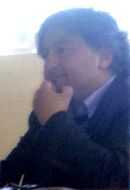
.jpg)
